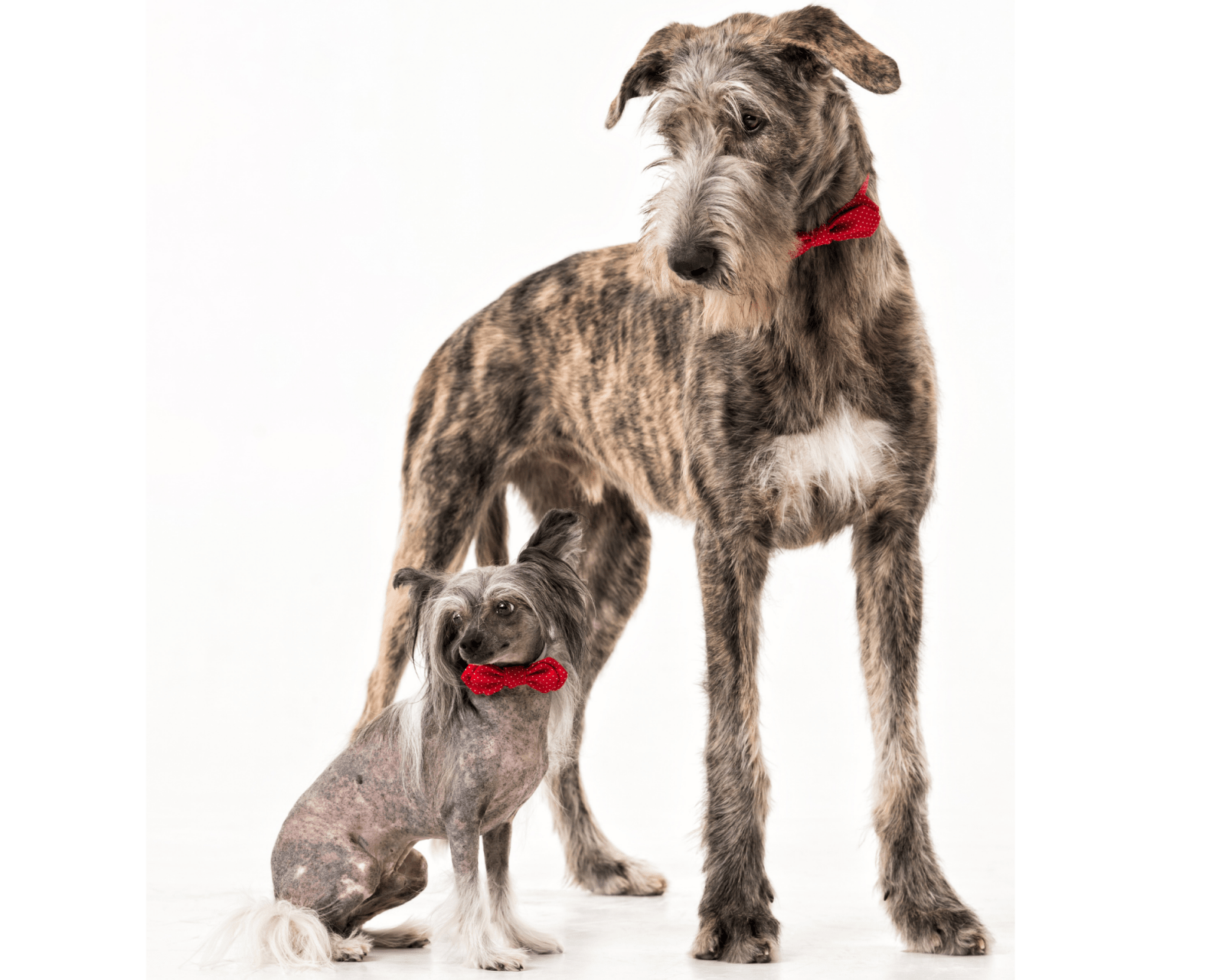1700 Words, 7 Minute Read
Dive into new resources for locating reputable small dog breeders. Discover Purdue’s gold-standard care program, spot the good guys, and dodge the pitfalls in your quest for a happy, healthy pup.
Please Note: So many of you are dedicated rescue parents and supporters. I, also, support reputable rescues through donations and volunteerism. And, I’m also committed to transforming the world of dog breeding so the animals we love experience this world as a nurturing place. I believe these two worthy causes can co-exist.
***
My mission is to help small dogs live long, happy, and healthy lives through providing educational content to their human parents. To support these efforts, this page may contain affiliate links allowing me to earn a small commission at no cost to you.

Introduction: The Challenge of Finding Reputable Small Dog Breeders
At least several times a month, my inbox fills with messages from individuals seeking guidance on finding reputable small dog breeders.
The stark reality is that reputable small dog breeders are not only hard to come by, but once you’ve found one, you might be on a lengthy waiting list for a puppy. Dedicated individuals don’t churn out puppies for quick sales. Instead, they’re devoted to enhancing the breed they cherish or continuing the lineage of an exceptional dog. Their mission is deeply rooted in love and respect for their canines, not commercial gain.
Indeed, I travel half-way across the country to work with a breeder I consider a rare treasure. She’s deeply involved in furthering the health and well-being of the Havanese breed. She worked for decades in a veterinary practice, so she brings impressive medical experience to her work. And, she’s committed to staying up-to-date on all the latest health issues affecting Havanese.
I found her through exhaustive research and nearly 40 hours of breeder interviews via phone and email. In addition, my “dog world” connections run deep. However, I’m aware not everyone can find a reputable small dog breeder using my “look under every rock” method.
Recently, I discovered a beacon of hope for prospective dog owners: the Purdue Canine Care Certified program. This initiative sets a high standard for breeders, using a comprehensive approach to increase the likelihood of puppies and adult dogs in breeding programs being very well-cared for.
While the certification isn’t a guarantee your prospective breeder is truly good, it certainly makes it much more likely you’ve found someone who commits to careful nurturing of the dogs working in their breeding program.
Purdue Canine Care Certified: Raising the Bar for Reputable Small Dog Breeders
The Purdue Canine Care Certified program is a groundbreaking voluntary initiative.
With just 200 currently certified breeders nationwide, this program sets reputable small dog breeders apart from the crowd. It’s built on five robust pillars of care: Physical Health, Behavioral Health, Environment, Breeding Life and Retirement, and Caretaker Expectations. These pillars ensure breeders provide comprehensive care, focusing on both the physical and behavioral health of the dogs, creating enriched and varied environments, ethical breeding practices focused on parent welfare, and ongoing education for caretakers.

Navigating the Search for Certified Breeders
Oddly, Purdue University doesn’t appear to maintain a public list of Canine Care Certified breeders. I’ve reached out to them on their Facebook page to double-check.
The apparent lack of a list might initially make your search for reputable small dog breeders seem daunting. However, I’ve found an approach that can yield successful results. By using search engines and inputting keywords such as “Canine Care Certified” along with the specific breed you’re interested in, like “Havanese” or “Cavapoo,” you can unearth breeders who have earned this game-changing certification. This method has led me to various reputable breeders seemingly committed to the highest standards of canine care. It’s an extra step in the process, but one that could lead you to a healthy, well-adjusted puppy raised with love and expertise.

Physical and Behavioral Health: Key Considerations from Reputable Small Dog Breeders
Reputable small dog breeders, like those certified by Purdue, prioritize the physical health of their dogs. They partner with veterinarians for any necessary procedures and emphasize preventive care, including genetic screening, dental care, and grooming. Behavioral health, too, is a prime concern, requiring a strong commitment to mental stimulation, socialization, and emotional well-being. This holistic approach to health is what sets these breeders apart.
The Ideal Environment and Ethical Breeding: Hallmarks of Reputable Small Dog Breeders
Reputable small dog breeders know that a dog’s environment drastically impacts her development. Safe, high-quality spaces with outdoor access and various sensory experiences are crucial. Moreover, ethical breeding practices, including set limits for the number of litters, breeding life and ensuring humane retirement plans, are non-negotiable standards for top-tier breeders.
Continued Learning: A Must for Reputable Small Dog Breeders
Continued education is vital for breeders. Purdue-certified breeders commit to ongoing learning about canine care, utilize low-stress handling procedures, and uphold transparency, demonstrating their dedication to their animals’ welfare and to prospective pet owners.
The AKC Breeder of Merit Program: An Alternative Focus
The AKC Breeder of Merit program differs from Purdue’s, with a focus on promoting purebred dogs and AKC standards.
While it includes health screenings and mandates that puppies be AKC registered, its emphasis seems to be less on comprehensive welfare and more on lineage documentation and participation in AKC events — something to consider for enthusiasts of purebred dogs.
Because of its emphasis on AKC membership and its single-test measure of dog welfare (breeders certify they health-test), I’d not put too much stock in the Breeder of Merit badge.

Proceed with Caution: The Misconception of USDA Licensing
When searching reputable small dog breeders, many prospective pet owners might assume that a United States Department of Agriculture (USDA) license is a seal of approval regarding the safety and care of a breeder’s dogs.
However, this common misconception leads down a troubling path. A USDA license, in reality, says nothing about the quality of a breeding program. Instead, it merely indicates compliance with the minimum standards required for commercial breeding operations — standards that, unfortunately, are far below what most of us would consider acceptable.
In fact, when I see a breeder flaunting their USDA license as a “stamp” of quality, it signals to me something quite different. Large-scale puppy mills, which prioritize profit over dog welfare, often feature this badge to fool unsuspecting families. In fact, some of these facilities with USDA licenses are notorious for their frankly hellish conditions and the physical and emotional neglect of their animals.
For those who wish to delve deeper into the realities behind USDA licensed breeders, I highly recommend reading “Barred from Love,” an article published by the ASPCA. It provides an eye-opening look into the harsh and often heartbreaking conditions dogs endure in these breeding facilities.
Understanding that a USDA license is not a mark of excellence, but rather a bare-minimum standard, is crucial. It underscores the importance of thoroughly researching breeders, looking for those certified by welfare-focused programs like Purdue’s Canine Care Certified, and always remaining vigilant about the health and happiness of the animals.
If You Can’t Find a Certified Breeder or Wish to Use a Breeder Recommended to You
Often, we fall in love with a breed and friends and acquaintances say “oh, you must use my breeder. They’re amazing.”
And, while word-of-mouth recommendations are part of the vetting process, remember the cognitive bias at work here. Your acquaintance loves her dog (probably almost more than anything), and she is unlikely to admit, even to herself, any potential red flags with her pup’s health or behavior. So, don’t just rely on recommendations (and certainly not on unverified Google reviews). Instead, do your own “mini-certification” and ask the types of questions Purdue’s program asks.
1. Physical Health:
- Can you provide detailed medical records for the puppy and its parents? This should include vaccination records, preventive medications, and any genetic testing.
- What kind of health guarantees do you offer for your puppies?
- Do you have a veterinarian who oversees the health of your dogs? Can I contact them?
- How do you handle grooming, dental care, and parasite prevention?
2. Behavioral Health:
- What steps do you take to socialize your puppies?
- Can you discuss your behavioral wellness plan for your dogs?
- How do you exercise the dogs and ensure they receive mental stimulation?
- Are the puppies exposed to different environments and various people before they go to their new homes?
3. Environment:
- Can I visit your breeding facility to see the conditions in which the dogs are raised?
- How do you provide for the dogs’ comfort regarding living space, bedding, temperature control, and access to clean water and food?
- Do the dogs have access to outdoor spaces? How often?
- Are the puppies raised in a home environment to acclimate them to household noises and experiences?
4. Breeding Life and Retirement:
- At what age do you begin to breed your dogs, and at what age do you retire them?
- What is your policy for the retirement of your breeding dogs?
- How many litters do your dogs have in their lifetime?
5. Caretaker Expectations:
- How do you stay informed about best practices in dog breeding and canine care?
- Can you provide references from other families who have adopted your puppies?
- Will you be available to answer questions or concerns I have now and in the future?
- Do you require a spay/neuter agreement or any other contracts for puppy adoption?
These questions align with the pillars of care in the Purdue program and can help guide you in assessing whether a breeder meets high standards for the health and well-being of their dogs, even if they haven’t been officially certified by a particular program.

Conclusion: Your Companion Deserves the Best Start
For those searching for reputable small dog breeders, programs like Purdue Canine Care Certified are invaluable. They provide a clear standard and peace of mind, ensuring your furry family member has had the best start in life. Remember, a breeder’s certification is more than a label; it’s a sign they’re likely committed to providing your family with a healthy, loving companion for years to come.
Read About Our Breeder Experiences In Downward Sizing Dog: A Reformed Big Dog Snob Defends the Small Dog Life
I’ve experienced so many good breeders. And, unfortunately, the opposite is true. I even fell for a puppy mill decades ago, when I didn’t know any better. You can enjoy the backstory in Downward Sizing Dog, available from my own bookstore, on Amazon, and everywhere books are sold. It’s been called a “love letter to small dogs” and, with a 4.9 rating on Amazon, it dives deep into the stories and science proving small dogs rock.
You’ll Also Love
Leave a Reply
Your email address will not be published.




